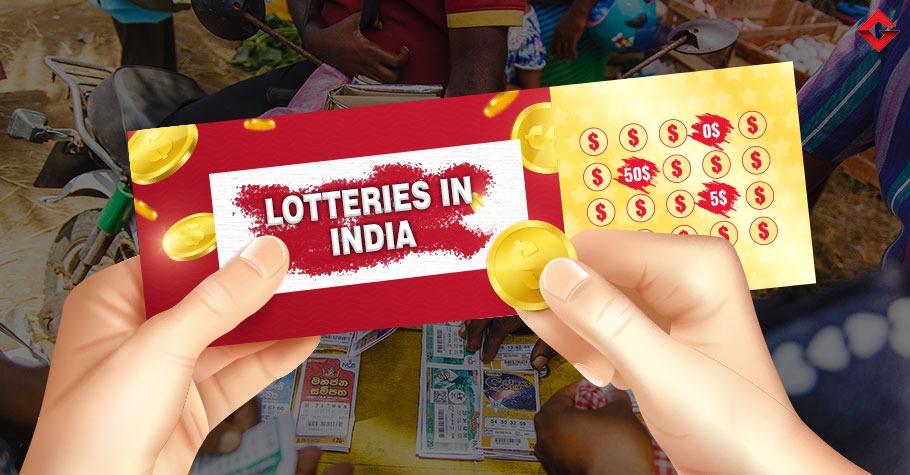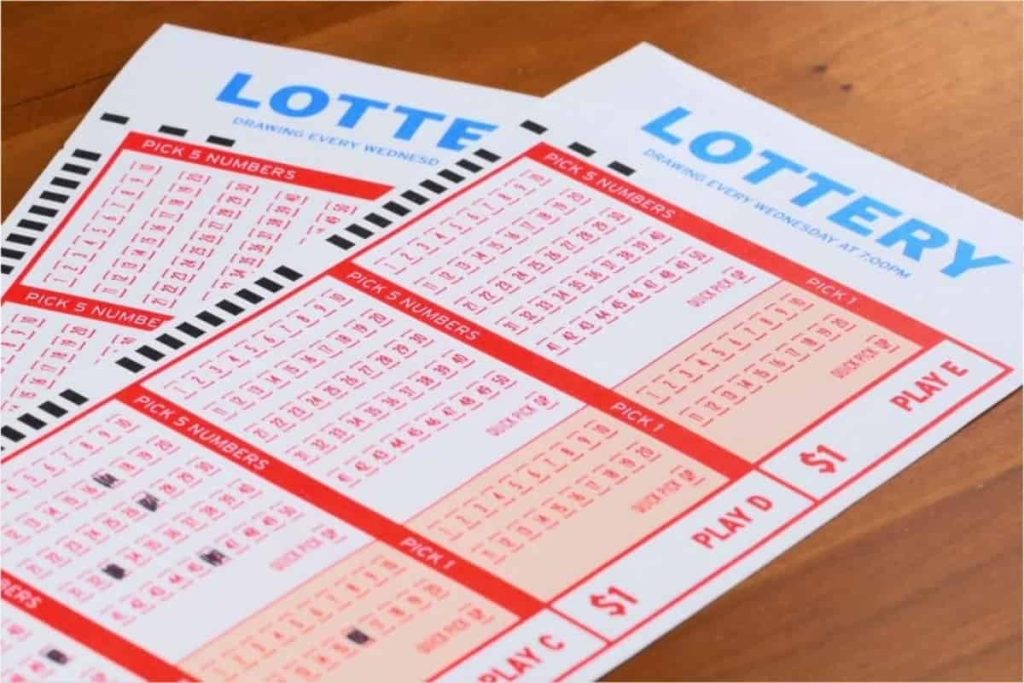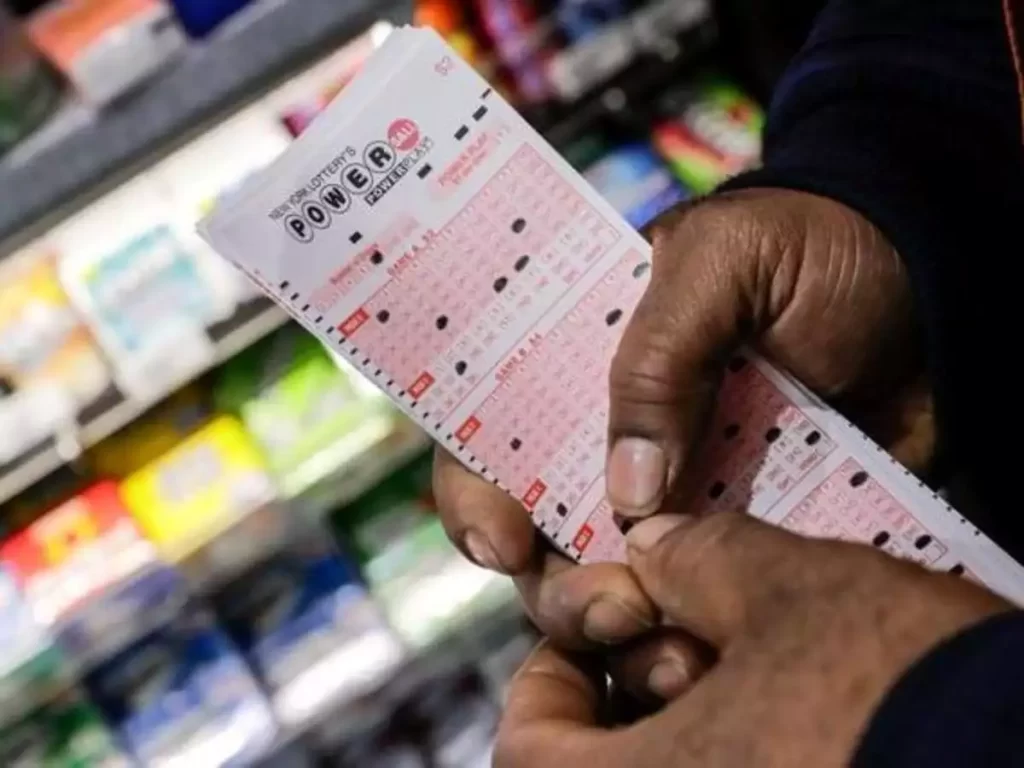 Lotteries
Lotteries
Why Only Thirteen Indian States Allow Lotteries?
 “While 13 Indian states allow lotteries to thrive, other states don’t. What needs to be done to legalize lotteries throughout the country?’ When this question striked our minds, we got in touch with Mr. Jaydeep Chakravartty, iGaming Consultant to know more about it. Here’s what he said:
“While 13 Indian states allow lotteries to thrive, other states don’t. What needs to be done to legalize lotteries throughout the country?’ When this question striked our minds, we got in touch with Mr. Jaydeep Chakravartty, iGaming Consultant to know more about it. Here’s what he said:
Lotteries of luck have always been prevalent in different forms in Indian society for thousands of years. It has certainly come a long way, starting right from the Han Dynasty around 205 BC. Barring 13 Indian states, the sale of lottery tickets is banned in other states now. Lotteries are hugely popular in states like Maharashtra, West Bengal, Punjab, Kerala and Sikkim and one of the major sources of revenue earnings in the states is by selling lotteries.
There is no blanket ban on lotteries across the country. But, only a few states allow lotteries. These are Kerala, Goa, Maharashtra, Punjab, West Bengal, Assam, Arunachal Pradesh, Meghalaya, Manipur, Sikkim, Nagaland and Mizoram. After independence, Kerala became the first Indian state to legalize lotteries in 1967. Later, the land of coconuts also became the first state to put a taxation system on the collection of lotteries.
The legality of the lottery in India is a state subject. The Central Government has authorized all States to devise their own law under the Lotteries (Regulation) Act 1998. Accordingly, government lottery is legal in some Indian States for now and banned in the rest. The activity is illegal in all other Indian States and Union Territories.

Revenue from the lottery is one of the major earnings of the state governments. Every day there is a lottery and more than 6 lakh people are engaged in the trade as agents and retailers. The annual revenue from the sale of tickets is between ₹10,000 core to 12,000 crore for the Kerala state government. Liquor and lottery tickets are two major revenue earners for the state. Lottery is the backbone of its economy, especially when it comes to providing jobs to physically challenged people, who constitute a large section of ticket-sellers.
Kerala’s total population is 3.34 crore as per the 2011 Census, but it sells an astounding 7.92 crore lottery tickets every week. This makes the lottery as one of the major sources of non-tax revenue. In fact, the state government’s social welfare schemes are heavily financed with the revenue generated from the lottery business. According to Kerala Economic Review, 2018, non-tax revenue as a proportion of Gross State Domestic Product since 2013-14 in Kerala is due to the increase in the gross receipt from lotteries.
ALSO READ: Taking a look at lotteries in India
The lottery business attracts vendors as 10% of the prize-winning money goes as the agent’s commission and an agent gets a certain percentage as a commission on the selling price. For instance, if a ticket price is ₹30, the agent gets a commission of ₹5.80, which makes it a win-win situation for the vendor and the government as well as almost 30% income tax is levied on prize money and also the Government earns 28% of the sale revenue as GST.

The Lottery Department in Kerala has got benefits after introducing a new system to detect fake lottery tickets in the market. A mobile app called ‘Bhagyakeralam’ has been developed to scan the QR code on tickets to detect if they are fake. The ability to curb the sale of counterfeit tickets and the introduction of the QR code system has led to an increase in ticket sales. Many new Lottery Sub Offices have been opened throughout the state and new offices are very useful for agents and lottery sellers who previously relied solely on district centres to collect lottery tickets for sale.
The ban on lotteries is not very effective as they operate online and the operators have introduced several modus operandi to sell fake lottery tickets and many state governments have failed to curb the sale of counterfeit lottery tickets causing revenue loss for the state governments.
There are also many illegal lotteries, being operated by anonymous players. They have a wide reach and are difficult to trace as they are run online. Many of these lotteries are also run by offshore companies that are difficult to trace and they can scam Indians very easily. Offshore platforms are becoming more appealing to tech-savvy players, gaining popularity via mobile apps and social media and making foreign lotteries more attractive to a growing share of players. Offshore based companies like lotto smile / lotto247 target Indian players and they also don’t pay any tax. Hence, it becomes difficult to trace them. The inability to transition to online operations, makes States fall behind a number of fast-paced gaming and entertainment business models.
Section 4 of the Lotteries Regulation Act, 1998 sets the pre-requisite conditions following which lotteries may be organized, legalized or promoted by the State. The conditions are, that state governments shall print lottery tickets that will bear the logo of the State government to ensure authenticity, no prizes can be offered on any pre-announced number or based on a single digit, and state governments will sell tickets either themselves or through their agents, they will also conduct the draws of all lotteries, the place of such a draw will be located within the State conducting the draw. There will be only one draw per week for a lottery and there cannot be more than six bumper draws of a lottery in a year, laid down in the pre-requisite conditions.

This section also empowers the Central government to prescribe such other conditions. Parliament has the power to form a committee comprising retired judges, revenue secretaries, advocate general and industry experts. The committee members will find out the existing lacunae in the system and will devise new measures to prevent the sale of counterfeit lottery tickets and can suggest new ideas to promote the lottery industry.
Attempts to implement blanket bans on lotteries in India did not derive any positive results in the past. The attempt only forced consumers to choose between offshore distribution and local black markets causing revenue loss to the state governments to the tune of millions of USD. Global trends suggest, however, that as more online lottery games become available, state governments will need to digitize their products – and tackle some taxation issues – to be able to compete and grow their user base among younger generations.
Regional differences have also emerged in India, with Kerala running the most successful paper-based lottery, in a state with high literacy rates. If regulated well – including on a national level – it has tremendous potential to support public welfare programs, local employment and other public objectives and can contribute a stupendous share to the states’ coffers as well as to the General Service Tax. State-run lottery revenues often exceed corporate income taxes in the U.S., where lottery tickets are heavily taxed. Indian players always appreciate the government’s message of “trustworthy, democratic and transparent” ways while streamlining the industry.
For more similar content, keep reading GutshotMagazine.com. Follow us on Facebook, Instagram, and Telegram.

Jaydeep is an iGaming Consultant and has worked with some of the leading Gaming Businesses worldwide. Jaydeep worked with Markor Technology (earlier Nektan PLC) as Vice President Commercials and expanded Markor’s reach in established and emerging Markets in Asia and Africa. Before Markor, Jaydeep worked with Ingenuity Gaming since their foray into eGaming. Jaydeep has extensive experience working in the gaming industry at the senior level, including executive roles at leading Online Gaming brands 32 Red, Ladbrokes and Cozy Games.
Jaydeep has been very enthusiastic about the gaming industry in India and advises established businesses as well as startups to foray into India. Jaydeep has professional relationships with all the key stakeholders and is playing a key role in establishing a vibrant Gaming industry in India.
Comments
Top 15 Poker Rooms
-
TripsyPoker
Sign-up with Gutshot
Offer: Get 30% Instant Rakeback Register -
Natural8 India
Sign-up with Gutshot
Offer: 200% bonus up to ₹81,000 on first deposit Register -
Spartan Poker
Grab Welcome Bonus
Offer: FTD 50% Bonus Money up to ₹20K. Deposit code ‘ALLIN50’ Register -
Junglee Poker
Sign-up and get bonus
Offer: Up to ₹50,000* Register -
PokerCircle
Download the app
Offer: Get welcome bonus up to ₹65,000* Register -
PokerDangal
Deposit with code GSTREFUND
Offer: Get 100% GST discount on deposits Register -
BatBall11 Poker
Sign-up with code GUTSHOT
Offer: Get ₹50 FREE Register -
WinZo Poker
Daily Winnings Up To ₹40 Crore!
Offer: Get ₹550 Joining Bonus For Free Register





















Leave a Reply